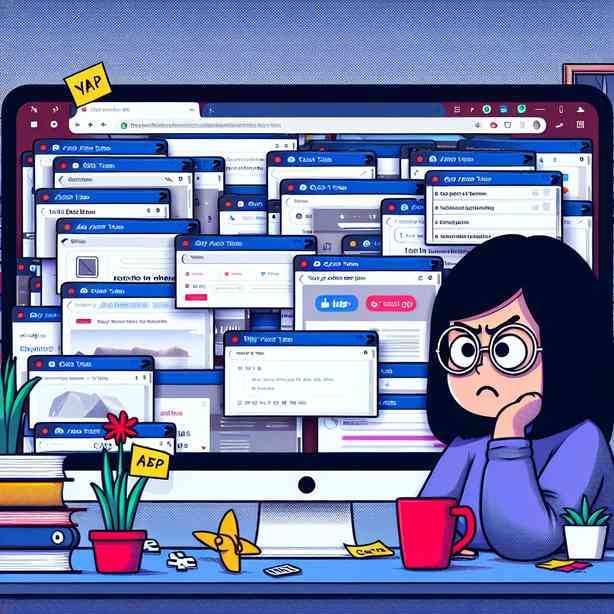
In today’s digital age, many of us find ourselves juggling numerous tabs on our web browsers, often to the point that it becomes overwhelming. The habit of opening extra tabs might seem harmless at first, but over time, it can lead to serious consequences that affect both productivity and mental clarity. This discussion aims to delve deep into the reasons behind our tendency to keep multiple tabs open and to explore effective strategies to manage them better.
One of the primary reasons people keep extra tabs open is the fear of losing information. We often open articles, research documents, or even just videos that interest us and then leave them open, thinking, “I will come back to this later.” This phenomenon is also known as tab hoarding. However, what many do not realize is that keeping too many tabs open can negatively impact our ability to focus and process information effectively. Research has shown that multitasking and constant context switching can lead to cognitive overload, reducing our overall productivity.
Another contributing factor to the habitual opening of tabs is the vastness of information available online. With countless resources at our fingertips, it’s easy to get caught in the rabbit hole of endless browsing. One page leads to another, and before we know it, we have accumulated a plethora of tabs, each representing a fragment of our scattered attention. This behavior can be exacerbated by the design of web pages and social media, which are often created to keep users engaged as long as possible. Notifications and visual cues encourage us to explore more, leading to a cycle of distraction.
Moreover, there’s an emotional component to our tab habits. The act of leaving tabs open can create a sense of unfinished tasks. Each tab may represent an obligation to ourselves to revisit a particular topic, which can lead to undue stress and anxiety. This psychological burden can accumulate, creating a sense of chaos in our digital workspace and a looming feeling of unproductiveness.
Managing tab overload requires a strategic approach. One effective method is to prioritize what truly matters. Take a moment to assess which tabs are essential and which ones can be either closed or saved for later. Bookmarking is a great tool to keep only the most relevant information handy without leaving it all open. There are also various browser extensions designed to help manage and organize tabs effectively. These tools offer features that can consolidate tabs, group them by categories, or even suspend inactive tabs, allowing for a cleaner workspace.
Additionally, setting specific time frames for activities can help mitigate the tendency to accumulate tabs. For instance, if you’re researching a topic, dedicate a specific time slot to focus solely on that topic. During that time, limit the number of tabs you open based on what you can reasonably handle without becoming overwhelmed. This not only maintains your focus but also enhances your ability to remember and process information effectively.
Furthermore, practicing digital minimalism can bring about a healthier relationship with technology and information. This involves being intentional about the content we consume and how we engage with our devices. Asking ourselves questions such as, “Is this information necessary for my goals?” or “Will I really return to this later?” can help clarify our motivations behind opening new tabs. By being more selective, we reduce the cognitive load and foster a more mindful browsing experience.
Encouragingly, adopting these strategies can lead to improved productivity and mental well-being. Clearing unnecessary tabs regularly promotes an organized and clutter-free digital environment, reducing distractions and enhancing our ability to concentrate. Moreover, the peace of mind that comes from maintaining a more streamlined system can lead to increased satisfaction in both professional and personal endeavors.
In conclusion, while the instinct to keep extra tabs open can be driven by fear of losing information or the allure of endless exploration, understanding the implications of this habit is crucial for fostering a productive online environment. By implementing strategic techniques to manage and reduce tab clutter, we not only enhance our efficiency but also promote a healthier relationship with information consumption. Cultivating the habit of closing extra tabs can free mental space, boost our focus, and create a more enjoyable and less fragmented digital experience. So, the next time you find yourself with a multitude of open tabs, remember the benefits of a simple click to close and embrace the clarity that comes with it.


